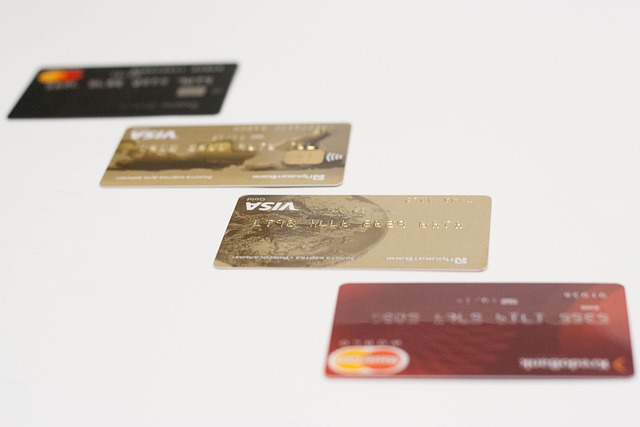Credit Cards with Quick Approval: What to Know Before You Apply
When you need a credit card quickly, the appeal of instant or same-day approval can be incredibly tempting. Quick approval credit cards have become increasingly popular among consumers who want to access credit without lengthy waiting periods. These cards typically provide decisions within minutes or hours rather than days or weeks. However, understanding the mechanics, requirements, and potential drawbacks of these financial products is crucial before submitting your application. The speed of approval doesn't necessarily mean you should rush your decision-making process.

How Are Quick Approval Credit Cards Explained?
Quick approval credit cards explained involves understanding the streamlined application and decision process that many card issuers have implemented. These cards leverage automated underwriting systems that can instantly analyze your creditworthiness using algorithms and real-time credit data. When you apply online, the system accesses your credit report within seconds, evaluates your income information, and cross-references various financial indicators to make an immediate lending decision.
The technology behind quick approvals relies heavily on pre-qualification systems and soft credit checks that don’t impact your credit score initially. Many issuers use sophisticated risk assessment models that can quickly categorize applicants into approved, denied, or pending review categories. Cards marketed as having quick approval often target specific credit profiles, such as those with excellent credit scores or existing banking relationships with the issuer.
However, it’s important to note that quick approval doesn’t always guarantee instant card access. While you might receive approval notification within minutes, the physical card still needs to be mailed, which typically takes 7-10 business days. Some issuers offer digital wallet integration or expedited shipping for faster access to your credit line.
What Are the Requirements for Quick Approval Credit Cards?
Requirements for quick approval credit cards generally mirror those of traditional credit cards, but issuers often have more stringent criteria to enable faster decision-making. Most quick approval cards require applicants to have good to excellent credit scores, typically 670 or higher, though some secured cards may accept lower scores with collateral deposits.
Income verification plays a crucial role in quick approval processes. You’ll need to provide accurate employment information and annual income figures, which the system may verify against databases in real-time. Some issuers require a minimum income threshold, often ranging from $15,000 to $25,000 annually, depending on the card’s features and credit limit potential.
Additional requirements often include being at least 18 years old (21 in some states without independent income), having a valid Social Security number, and maintaining a U.S. address. Your debt-to-income ratio is another critical factor, with most issuers preferring ratios below 40%. Having an existing relationship with the bank or credit union can sometimes expedite the approval process, as they already have your financial history on file.
What Are the Pros and Cons of Quick Approval Credit Cards?
The pros and cons of quick approval credit cards present a mixed picture that requires careful consideration. On the positive side, these cards offer unmatched convenience when you need credit access urgently. Whether you’re facing an unexpected expense, planning a last-minute trip, or wanting to take advantage of a limited-time offer, quick approval can provide the financial flexibility you need within hours.
Many quick approval cards come with competitive features, including attractive welcome bonuses, cashback rewards, or travel benefits. The streamlined application process saves time and reduces paperwork, making the experience less cumbersome than traditional applications. Additionally, quick approval often indicates that you have strong creditworthiness, which can be reassuring for your financial confidence.
However, several disadvantages deserve attention. Quick approval cards may have higher interest rates or annual fees compared to cards that undergo more thorough underwriting processes. The speed of approval might encourage impulsive financial decisions without adequate comparison shopping. Limited time for research could result in choosing a card that doesn’t align with your long-term financial goals or spending patterns.
Furthermore, if you’re denied quick approval, it might indicate underlying credit issues that require attention. Some quick approval cards have lower initial credit limits, which could impact your credit utilization ratio if you’re not careful with spending management.
| Card Type | Typical APR Range | Annual Fee | Credit Score Required |
|---|---|---|---|
| Quick Approval Rewards Cards | 16.99% - 24.99% | $0 - $95 | 670+ |
| Instant Approval Cash Back | 15.49% - 23.49% | $0 - $0 | 650+ |
| Fast Approval Travel Cards | 17.24% - 24.24% | $95 - $550 | 700+ |
| Secured Quick Approval | 22.99% - 26.99% | $0 - $39 | 300+ |
Prices, rates, or cost estimates mentioned in this article are based on the latest available information but may change over time. Independent research is advised before making financial decisions.
Making an Informed Decision
Before applying for any quick approval credit card, take time to evaluate your financial situation and credit needs thoroughly. Consider factors such as your current credit score, existing debt obligations, and how you plan to use the new credit line. Compare multiple card options, even if they don’t offer quick approval, to ensure you’re selecting the best long-term financial product.
Quick approval credit cards can be valuable financial tools when chosen wisely and used responsibly. The key lies in balancing the convenience of fast approval with careful consideration of terms, fees, and how the card fits into your broader financial strategy. Remember that the speed of approval should never be the sole deciding factor in your credit card selection process.




